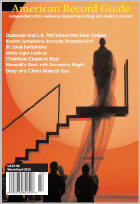Texte paru dans: / Appeared in: |
|
|
Outil de traduction ~ (Très approximatif) |
|
|
Reviewer: Peter
Loewen Olivier Fortin has come up with a clever way of breaking down barriers between Western European and Turkish classical music. Travelling the Route du Café, as it were, Fortin traces the café music of London, Paris, and Leipzig back to the source of this cultural phenomenon in Ottoman Turkey. He notes that in the mid-16th Century, “fasils” (suites) and other forms of secular music by the likes Nayi Osman Dede (c. 1652-1729) were commonly performed in Turkish coffee houses. His contemporaries Nicolas Bernier (1664-1734) and Marin Marais (1656-1728) reflect the Paris café culture with the cantata Le Caffé and Marais’s ‘Saillie du Caffé’ for bass viol. JS Bach’s amusing Coffee Cantata was probably first performed in Gottfried Zimmermann’s Leipzig coffee house on one of the regular Friday evening concerts in 1715. Representing London, Fortin gives us music by Matthew Locke. His connection to café culture is tenuous; still, Samuel Pepys does mention in his famous diary that he met Locke at the Turk’s Head Coffee House around 1660, which was reason enough for Fortin to include the ‘Fantasia in D minor’.
Hana Blazikova, Reinoud van Mechelen, and Lisandro Abadie beautifully perform cantatas by Bernier and Bach with violins, flute, and continuo. But I am more taken with the less familiar Turkish music. The program opens with a taqsim (improvisation) for the ney flute. Dede’s ‘Rast Dilara Pesrev’ and ‘Saz Sema’l’ are recorded here for the first time by an ensemble of ney flute (Adrien Espinouze), oud (Evgenios Voulgaris), and percussion (Pierre Rigopoulos). There are other taqsims for oud, ney, and kaman (a Middle Eastern violin played by Kathleen Kajioka). Voulgaris’s performance of the ‘Taksim & Mahur Pesrev’ for yayli tanbur (a kind of bowed lute) by Tanburi Cemil Bey (1873-1916) is a wonder for its intricate ornamentation and microtonal inflections.
Texts
and notes are in English. | |
|
|
|
|
Cliquez l'un ou l'autre
bouton pour découvrir bien d'autres critiques de CD |
|




